The Special Investigation Team (SIT) has begun a probe into the murder of senior journalist Gauri Lankesh, who was shot dead in front of her house at Rajarajeshwarinagar in Bengaluru on Sept. 5.
In a Facebook post, Gauri Lankesh’s ex-husband, Chidanand Rajghatta, who is the Washington DC Correspondent of The Times of India, pays rich tributes to Gauri Lankesh. She lived a beautiful life of purpose and fought the good fight. It will not be in vain, says Rajghatta. Star of Mysore reproduces the Facebook post here. Now read on…
If Gauri Lankesh read all the tributes and accolades for her, particularly those that refer to soul and afterlife and heaven, she’d have cracked a good laugh. May be not a laugh, but at least a chuckle. We had decided in our teens that heaven and hell and afterlife were a lot of b.s. There was enough heaven and hell on earth, and we should just leave god alone — he has enough on his hands — instead of begging him for favours.
But part of our compact was we would not be hurtful to others — including family — even if we disagreed with their beliefs and practices. We didn’t always succeed – ah, the impetuosity of youth! — but it was a good principle that served us well later. Which is how even when we divorced 27 years ago, after five years of courtship and five years of marriage, we remained great friends — part of the compact. Don’t be hurtful. Even to each other.
We met at a school that was the birthplace of the Rationalist Movement of India — National College. Our Principal, Dr. H. Narasimaiah, and the Sri Lankan rationalist, Dr. Abraham Kovoor, were pioneers of the movement, and right from our teens we took to the thrill of questioning and debunking a variety of godmen/ godwomen, charlatans, frauds, superstitions etc.
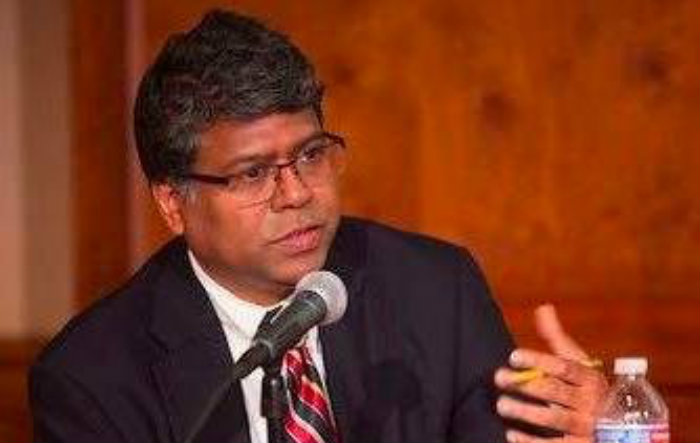
Chidanand Rajghatta, Washington DC Correspondent of ‘The Times of India.’
One of the first books we read together was Will Durant’s Story of Philosophy. Neither of us was proficient in our mother tongue Kannada (at that time), so we regretfully forsook our own bounteous literature for everything from Wodehouse to Graham Greene, devouring anything that Premier Book Shop’s Shanbhag could produce for us — at a matchless 20 per cent discount.
Feisty wouldn’t even begin to describe her. She hated the fact that I smoked in college. Years later, when I had given it up for a long time, she had begun to smoke. One time, she visited me in US (ex-wife visiting me? But we were better friends!) I insisted that she not smoke in the apartment because it was carpeted and the stink wouldn’t go away. It was winter.
“What do you want me to do?”
“If you have to smoke at all, go to the rooftop and smoke.”
“But it’s cold and snowing!”
“Shrug”
“You tightass!…I started to smoke because of you!”
“Awww…sorry old girl. I’m asking you to stop now.”
“Yeah, right. You’ve become too *&^%$#@ American!”
“American has nothing to do with it. Being healthy.”
“Bollocks. I’ll outlive you!”
Liar.
Many friends were bemused by our unbroken friendship. Separations and divorces are often messy, bitter, and spiteful in India, or anywhere for that matter. We had our volcanic moments, but we transcended that quickly, bound by higher ideals. On our day in court, as we stood next to each other, our hands reached out. Fingers interlaced. If you want to go your own ways, better disengage, the lawyer hissed.
After it was done and dusted (“by mutual consent”), we went out for lunch at the Taj down MG Road. The restaurant was called Southern Comfort. We laughed at the irony and said goodbye as I moved first to Delhi, then Mumbai, then Washington DC. She visited me in each place to argue about Life, the Universe, and Everything (we read Douglas Adams in school).
My parents loved her despite her rebellious nature, and remarkably for traditional, orthodox Indian parents, kept in touch with her — and she with them — even after we split. When my mother passed away this past February, Gauri Lankesh was there, literally “live casting” for me the final rites as I flew home.
My ties with her family were as unusual. Through our separation and splitsville, I continued to meet her dad P. Lankesh, a writer, playwright, film-maker and an inspiration for a generation of rebel writers and journalists, and her sister Kavitha — “baby” to us-now a fine film-maker in her own right. Early in our college dalliance, after Lankesh’s due diligence determined that I passed the literary litmus test, I became part of the family — including the extended family of writers, poets, artists, teachers, and what I’d kid as the “buddhijeevi” (intellectual) crowd.
Starting early 80s, we met every Sunday evening for a game of cards, where the stakes were modest but the conversation was rich. Poetry, proverbs, epigrams, aphorisms, in English and Kannada flowed ebulliently at the table.
Appa, as I called Lankesh, taught English literature in Bangalore University, but had decamped to Kannada when we met, having just directed his first movie (I think it was either Anuroopa or Pallavi, and it won the national award). His play “Sankranti’ was prescribed reading for undergrads, but we discussed everyone from Kalidasa to Ibsen, Chekhov, and Brecht.
All this continued through courtship, marriage, separation, and divorce, and even after I moved to US. Every time I went home, over a drink or two, pop-in-law and I, refereed by his daughter, would argue about politics, religion, literature, movies, US-India ties, farming distress, health, the world.
Gauri grew up in — practical, rational, and largely agnostic atmosphere. Death was just incidental. Respect, affection, and admiration for the good people did and what they stood for was important. Her — our — favourite word and topic of conversation in recent years was “horaata” — a Kannada word roughly meaning a movement/agitation/revolution. “Haegide horaata?” I’d ask during our occasional phone calls. She’d launch into a litany of struggles she was in at the moment.
Some eight years back, after I had built a new home in Bangalore in the fond hope that I’d return to India some day, she determined that I needed a housekeeper to manage the place. “I am sending someone over,” she declared over the phone. “She’s a widow with two young daughters. Make sure you take care of them and put them through school.” It was an order. I complied. Ramakka, her gift to us, is still with us; her daughters Asha and Usha both finished from school, earned degrees, and now work — Asha in Syndicate Bank and Usha at an NGO. There are hundreds of Ashas and Ushas because of Gauri Lankesh.
Just a few weeks ago Gauri called to announce she was coming over. Days passed, and she did not turn up. Busy, busy, busy, she said…you know how hard it is handling the paper and fighting the chaddis (she called the right wing nutters “chaddis”).
One day, she called to announce that she’s coming with her son. “Who have you adopted now?” I asked. “Kanhaiya Kumar,” she chuckled. “You mean the JNU bloke?” “Yes, you’ll love meeting him.” Little later she called to say his flight was late and she can’t make it. That was the last time I heard her voice — bubbly and bursting with energy and passion for causes big and small.
As my plane now wings towards India to a place without Gauri, my mind is a cauldron of fragmented memories. One phrase keeps repeating and resonating in my mind: Amazing Grace. Forget all other labels: leftist, radical, anti-Hindutva, secular etc. For me, there is just this: She is the epitome of Amazing Grace.



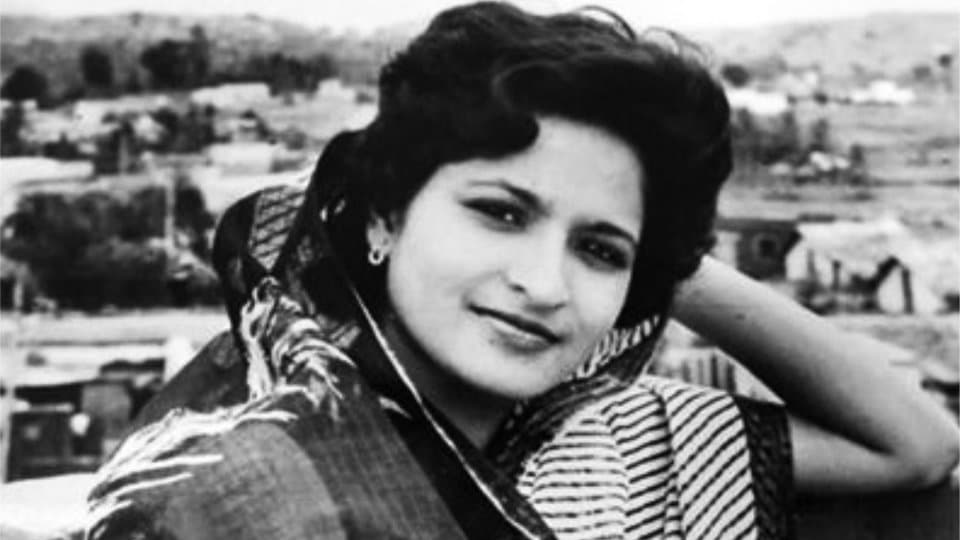
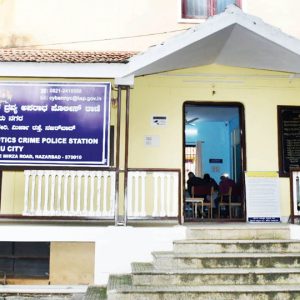

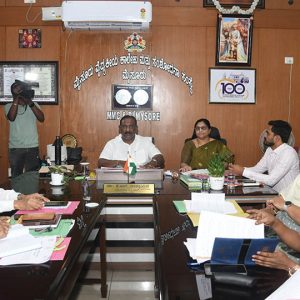
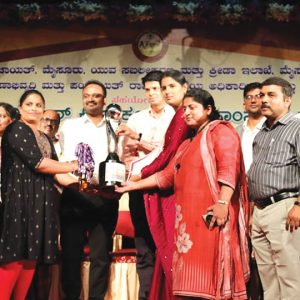
Recent Comments